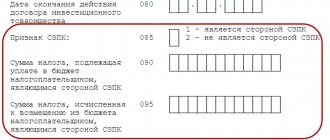Remote work is a new form of labor relations in Russia. There are many questions regarding its design, regime, and rights of remote workers from both applicants and employers.
We have prepared an article that describes the features of remote work from a legal point of view. If you want to find such a job or hire remote employees, be sure to read the article to the end. You will learn about all the nuances and your rights, as well as pitfalls.
Contents of the Law 2020 on remote work
The Federal Law in question dated December 8, 2020 No. 407-FZ introduced changes to the Labor Code of the Russian Federation, which regulate 2 main issues:
- remote (remote) work;
- temporary transfer of an employee to such work at the initiative of the employer in exceptional cases.
Therefore, here is how the Labor Code of the Russian Federation was corrected:
| NEW EDITION FROM 2021 (CHANGES AND ADDITIONS) | 4 NEW ARTICLES IN THE RF Labor Code SINCE 2021 |
| Article 312.1 – general provisions on remote workers Article 312.2 – features of concluding an employment contract and additional provisions. agreements to it, providing for the employee to perform a labor function remotely Article 312.3 - features of the procedure for interaction between a remote worker and the employer Article 312.4 - features of the working hours and rest time of a remote worker Article 312.5 - additional guarantees for remuneration of a remote worker | Article 312.6 – features of the organization of labor of remote workers Article 312.7 – features of labor protection of remote workers Article 312.8 – additional grounds for termination of an employment contract with a remote worker Article 312.9 – procedure for temporarily transferring an employee to remote work at the initiative of the employer in exceptional cases |
Next, we will analyze each of these positions.
We also note that the law in question comes into force on January 1, 2021 .
That is, all the provisions at once.
Results
Despite concerns, more and more modern employers are beginning to resort to the services of remote workers.
This is largely due to the desire of the enterprise to save on the costs of organizing an employee’s workplace, compensation for travel to and from work, etc. Also, one should not forget that remote employees, as a rule, are paid less than their office colleagues, and this saves on salary costs and insurance premiums. The main thing, when hiring an employee to work remotely, is to correctly draw up an employment contract with him. You can find more complete information on the topic in ConsultantPlus. Free trial access to the system for 2 days.
General provisions on remote work in the Labor Code of the Russian Federation from 2021
Concept
Remote (remote) work is the performance of a labor function specified by an employment contract outside the location :
- employer;
- its branch, representative office;
- other separate structural unit (including those located in another area);
- stationary workplace;
- territory or facility directly or indirectly under the control of the employer.
A prerequisite is the use of information and telecommunication networks, including the Internet, and public communication networks for:
- performing this labor function;
- interaction between employer and employee on issues related to its implementation.
Types of remote work
An employment contract or an additional agreement to it may provide for the performance of a labor function remotely on:
- on a permanent basis - during the term of the employment contract;
- temporarily - continuously for a period specified in the employment contract or additional agreement, not exceeding 6 months ;
- periodically - subject to alternating periods of performing work functions remotely and at a stationary workplace.
As a result, a remote employee is:
- who has concluded an employment contract or an additional agreement to it;
- performing a labor function remotely in accordance with the employer’s local regulations on temporary transfer (Article 312.9 of the Labor Code of the Russian Federation - at the initiative of the employer in exceptional cases).
During the period they perform their labor functions remotely, remote workers are subject to labor legislation and other acts of labor law, taking into account the specifics established by Chapter. 49.1 Labor Code of the Russian Federation.
The right of a remote worker to rest
In order to eliminate possible abuses on the part of employers, the amendments supplement the Labor Code of the Russian Federation with a new article 312.7, which guarantees the right of remote employees to rest. In accordance with this rule, a remote worker has the right to the inviolability of rest time.
The time an employee interacts with the employer during the employee’s rest period is included in working hours.
Interaction between an employer and a remote worker during rest periods without the prior written consent of the employee is permitted only in exceptional cases. So, calling and writing to a remote worker when he is on vacation is allowed:
- to prevent an industrial accident or eliminate the consequences of a natural disaster;
- preventing accidents, destruction or damage to the employer’s property;
- performing work the need for which is due to the introduction of a state of emergency or martial law, as well as urgent work in emergency circumstances.
In all other cases, interaction between the employer and the employee during his vacation is permitted only with his prior written consent.
How can an employer and employee interact when working remotely?
In the case of electronic document exchange, an enhanced qualified electronic signature of the employer and an enhanced qualified or enhanced unqualified employee signature are required when:
- concluding electronically employment contracts, additional agreements to them, contracts on financial responsibility, student contracts for obtaining education without interruption or without interruption from work;
- amendments to these agreements (additional agreements);
- their termination.
In other cases, it is sufficient to exchange electronic documents using other types of electronic signature. Or in another form altogether, provided for:
- collective agreement;
- a local act adopted taking into account the opinion of the elected body of the primary trade union organization;
- employment contract,
- additional agreement to the contract.
REFERENCE
Until 2021, parties to an employment contract had to use enhanced qualified electronic signatures when exchanging any electronic documents.
It is necessary to ensure that the fact that the employee and/or employer has received documents in electronic form is recorded.
When exchanging electronic documents, each party is obliged confirmation in the form of an electronic document of the main electronic document from the other party. The deadline must be set:
- collective agreement;
- a local act adopted taking into account the opinion of the elected body of the primary trade union organization;
- employment contract,
- additional agreement to the contract.
When interacting in another form, confirmation of actions related to providing each other with information must occur in the order determined:
- collective agreement;
- a local act adopted taking into account the opinion of the elected body of the primary trade union organization;
- employment contract,
- additional agreement to the contract.
With local acts, orders (instructions) of the employer, notices, requirements and other documents directly related to the work activity of a remote worker, in respect of which labor legislation requires their execution on paper and/or familiarization with them to the employee in writing , including under signature, the remote worker must be familiarized in one of 3 ways :
- in writing, including against signature;
- by exchanging electronic documents;
- in another form provided for by the coll. a contract, a local act adopted taking into account the opinion of the trade union, an employment contract, an additional agreement to it.
If, according to the Labor Code of the Russian Federation, an employee has the right or obligation to contact the employer with a statement , provide the employer with explanations or other information, he does this:
- in the form of an electronic document;
- in another form provided for by the coll. a contract, a local act adopted taking into account the opinion of the trade union, an employment contract, an additional agreement to it.
When submitting an application for the issuance of duly certified copies of work-related documents (Article 62 of the Labor Code of the Russian Federation), the employer must send them 3 working days 2 ways :
- on paper (by registered mail with notification);
- in the form of an electronic document, if indicated in the employee’s application.
To pay sick leave , including leave a remote worker acts in one of 2 ways:
- sends the original documents to the employer - by registered mail with notification;
- provides information about the series and number of the electronic certificate of incapacity for work (if the medical organization and the employer are participants in the information interaction system for electronic health insurance.
The procedure for interaction, including in connection with the performance of labor functions remotely, the transfer of work results and reports on work performed at the request of the employer, establishes:
- collective agreement;
- a local act adopted taking into account the opinion of the elected body of the primary trade union organization;
- employment contract,
- additional agreement to the contract.
Why was Chapter 49.1 of the Labor Code of the Russian Federation on remote work rewritten?
Legislators decided to seriously adjust Chapter. 49.1 of the Labor Code of the Russian Federation “Features of regulating the labor of remote workers” in order to eliminate the gaps of Russian labor law in this area: insufficient flexibility and limited possibilities for using information and communication technologies in labor relations (draft Federal Law No. 973264-7).
The authorities admitted that the current version of Ch. 49.1 of the Labor Code of the Russian Federation is difficult to apply, because of this, a minimum number of workers and employers use it - according to Rosstat, last year only 30 thousand out of 67.1 million employed citizens worked remotely on the basis of an employment contract. These figures are given in the explanatory note to the draft law.
In addition, in connection with the Covid-19 pandemic and the large-scale transfer of employees to remote work, the problems associated with the transfer of staff to remote work and the official registration of this procedure became aggravated and required an immediate solution.
Work and rest mode remotely
A collective agreement, a local act adopted taking into account the opinion of the primary trade union organization, an employment contract, an additional agreement can determine:
- working hours of a remote worker;
- for temporary remote work, also the duration and/or frequency of performing the work function remotely.
Unless otherwise provided by the listed documents, the remote worker sets his own working hours.
These documents may determine the conditions and procedure for:
- calling by the employer a remote worker performing remote work temporarily to perform his labor function at a stationary workplace;
- exit of such an employee on his own initiative (except for the cases provided for in Article 312.9 of the Labor Code of the Russian Federation) to perform his labor function at a stationary workplace.
permanent remote worker with annual paid and other types of leave is determined by a collective agreement, a local act adopted taking into account the opinion of the elected body of the primary trade union, and an employment contract in accordance with the general rules.
Providing annual paid and other types of leave to a remote worker performing such work temporarily occurs in accordance with the general procedure of Ch. 19 Labor Code of the Russian Federation.
The time of interaction between a remote worker and the employer is included in working hours.
Work schedule, vacation and guarantees
How many hours a day to spend at work, when to start and finish, how often to come to the office - all this can be stipulated in an employment contract, or in a collective agreement or local regulation. In the case where the employer has not approved any rules, the person is free to decide for himself which schedule is preferable for him.
The procedure for granting leave depends on the conditions under which the employee is transferred to remote work. If on an ongoing basis, then the rules must be written down in an employment or collective agreement, or in a local regulation. If it’s temporary, you need to adhere to the rules set out in Chapter 19 of the Labor Code.
ATTENTION
Thanks to the commented amendments, an important clarification will appear in Article 312.4 of the Labor Code of the Russian Federation. The time when a person “interacts with management” is considered working time when working remotely.
As for guarantees, a remote employee has the right to use them in the same way as if he came to work. Plus, it is clearly stated that remote mode cannot serve as a basis for reducing wages (new edition of Article 312.5 of the Labor Code of the Russian Federation).
Keep timesheets and prepare all personnel reports in the “Kontur.Personnel” service
Organization of work remotely
According to the new art. 312.6 of the Labor Code of the Russian Federation, the employer provides the remote employee with the necessary things to perform his job function:
- equipment;
- software and hardware;
- information security means;
- by other means.
A remote worker has the right , with the consent or knowledge of the employer and in his interests, to use his own or rented devices and software. In this case, the employer simultaneously :
- pays him compensation for their use;
- reimburses the costs associated with their use.
The procedure, terms and dimensions are determined by a collective agreement, a local act adopted taking into account the opinion of the trade union, an employment contract, and an additional agreement to it.
If a remote worker is sent to carry out an official assignment to another locality (to another territory), other than performing a work function, he is subject to the rules on business trips (maintaining a place, average earnings, reimbursement of expenses - Articles 166-168 of the Labor Code of the Russian Federation).
Requirements for a remote employee's workplace
The employer is not obliged to be directly involved in organizing and arranging a remote workplace. But if the head of the organization is interested in ensuring that the efficiency of employees does not fall due to a change in work location, it is important to check whether the employee has everything to perform it productively. For example, does he have stable access to the Internet at home, a computer suitable for work, the necessary software and communication tools, headphones, a microphone, and so on.
If such funds are not available, measures should be taken to provide the employee with everything necessary. For example, many ABiUS employees took home work laptops based on the transfer and acceptance certificate of material assets.
If an employee needs help installing software or troubleshooting technical problems, you can install TeamViewer on their computer. With the help of this program, technical support will be able to quickly and remotely solve his problems.
Labor protection for remote workers
To ensure safe working conditions and labor protection for remote workers during the period they perform their labor functions remotely, the employer fulfills the duties provided for in paragraphs 17, 20 and 21 of part two of Art. 212 Labor Code of the Russian Federation. This:
- investigation and recording of industrial accidents and occupational diseases;
- compliance with the instructions of officials of Rostrud (GIT) and other regulatory legal acts containing labor law norms, other federal executive bodies exercising state control (supervision) in the established field of activity, and consideration of submissions from public control bodies within the time limits established by law;
- compulsory social insurance against accidents at work and occupational diseases (insurance contributions to the Social Insurance Fund for injuries).
The employer is also obliged to familiarize remote workers with labor safety requirements when working with equipment and tools recommended or provided to them.
Other obligations of the employer to ensure safe working conditions and labor protection, established by law, do not apply to remote workers during the period they perform their labor functions remotely. But something else may be provided:
- collective agreement;
- a local act adopted taking into account the opinion of the elected body of the primary trade union organization;
- employment contract,
- additional agreement to the contract.
Changes in the payment procedure for remote work
With the new Article 312.5 of the Labor Code, the state protected remote employees from losses in wages under the new work format. Now the law directly states that remote performance of labor functions cannot be a basis for reducing wages.
Tax officials explained how to transfer personal income tax to those organizations that have branches and use remote workers.
According to the Federal Tax Service, here you need to focus on who pays a specific employee remuneration - the parent company or a branch. Personal income tax must be transferred to the budget at the place of registration of the payer (company or branch) whose staff list includes a remote employee.
In this case, the location of the remote worker himself does not matter. The very fact of transferring an employee to remote work does not form a separate unit (letter of the Federal Tax Service of the Russian Federation dated October 14, 2020 No. SD-4-3 / [email protected] ).
Add. grounds for dismissal of a remote worker from 2021
This is regulated by the new Art. 312.8 Labor Code of the Russian Federation. According to it, a remote worker is subject to the general grounds for termination of an employment contract (Article 77 of the Labor Code of the Russian Federation, etc.). But legislators still added one more thing - at the initiative of the employer. It sounds like this:
“... if, during the period of performing a labor function remotely, the employee, without good reason, does not interact with the employer on issues related to the performance of the labor function for more than 2 working days in a row from the date of receipt of the corresponding request from the employer (except if a longer period for interaction with the employer is not established by the procedure for interaction between the employer and the employee, provided for in Part 9 of Article 312.3 of the Labor Code of the Russian Federation).”
with a permanent distance worker can also be terminated if he changes the location of his work function , if this makes it impossible to perform his duties under the same conditions.
The employer is obliged, within 3 working days from the date of issuance of the order (instruction) to terminate the employment contract, to send the remote worker (permanent or temporary) by registered mail with notification a duly executed copy on paper (if the parties initially agreed to exchange electronic documents) .
We also note that the employer does not have the right to stipulate in the employment contract its grounds for dismissing a remote worker (although initially such a provision was in the bill).
How to apply for sick leave
To receive temporary disability benefits or maternity benefits, a remote employee must send the original ballot to the accounting department. This must be done by registered mail with return receipt requested.
If the ballot is issued in electronic form, the employee must inform the accounting department of the series and number of this document (for more information about electronic sick leave, see “The procedure for issuing sick leave is changing: what should the employer do”).
Work with electronic sick leave according to new rules
Temporary forced transfer to remote work by decision of the employer from 2021
The procedure for temporary transfer to remote work at the initiative of the employer (this is possible in exceptional cases) is regulated by the new art. 312.9 Labor Code of the Russian Federation.
This is possible in the following cases:
- natural or man-made disasters;
- industrial accidents;
- industrial accident;
- fire, flood, earthquake, epidemic or epizootic;
- any exceptional cases threatening the life or normal living conditions of the entire population or part of it.
The period of such transfer must be equal to the period of existence of the specified circumstances (cases).
But also a temporary transfer to remote work at the initiative of the employer is possible if the corresponding decision is made by a government body and/or a local government body. For example, as Moscow Mayor S. Sobyanin did in 2021, obliging employers to transfer at least 30% of their full-time employees to remote work.
The employee's consent to a temporary transfer to remote work is not required!
In this case, the employer must provide the employee with the necessary equipment to perform his or her job function remotely:
- equipment;
- software and hardware;
- information security means;
- by other means.
But there is a second option. Reimburse such an employee for 3 types of expenses :
- compensation for their use (own or rented);
- costs associated with their use;
- other expenses associated with performing work functions remotely.
If necessary, the employer must provide training on the use of equipment and software that it has recommended or provided.
The employer, taking into account the opinion of the elected body of the primary trade union organization, must adopt a local act on temporary transfer to remote work. It needs to reflect:
- circumstance/case (see above) that became the basis for the decision to temporarily transfer to remote work;
- list of temporarily transferred workers;
- transfer period (no longer than the period of existence of relevant circumstances);
- the procedure for providing, at the employer’s expense, the necessary equipment, software and hardware, information security tools and other means, the procedure for paying compensation for the employee’s use of their own or rented equipment, the procedure for reimbursement of expenses associated with their use, as well as the procedure for reimbursement of other expenses related to remote work ;
- the procedure for organizing the work of those temporarily transferred to remote work (including the working hours, including the definition of time periods during which there is interaction between the employee and the employer (within the working hours established by the internal labor regulations or the employment contract), the procedure and method of interaction (provided that they allow you to reliably determine the person who sent the message, data and other information), the procedure and timing for employees to submit reports on work performed);
- other provisions related to the organization of labor of those temporarily transferred to remote work.
The employee must be familiarized with the specified local act in a way that allows reliably confirming its receipt by the employee.
When temporarily transferring to remote work at the initiative of the employer, changes to the employment contract with the employee are not required.
At the end of the transfer period, the employer is obliged to provide the employee with the previous work provided for in the employment contract, and the employee is obliged to begin performing it.
It is important that during the period of temporary transfer the employee is subject to the guarantees provided for a remote worker (see above). Including:
- labor protection;
- provision at the expense of the employer with the necessary equipment, software and hardware, information security means and other means;
- payment of compensation for the employee’s use of their own or leased equipment and software;
- reimbursement to the employee of other expenses associated with remote work.
But it happens that:
- the specifics of working at a stationary workplace do not allow temporary transfer to remote work;
- the employer cannot provide the employee with the equipment, software and hardware, information security tools and other means necessary to perform his job function remotely.
Then the time during which the employee does not perform his job function is considered idle for reasons beyond the control of the employer and employee. It is paid as no less than 2/3 of the tariff rate (salary) in proportion to downtime (Part 2 of Article 157 of the Labor Code of the Russian Federation). Although a larger payment may be provided:
- collective agreements;
- agreements;
- local regulations of the employer.
Read also
08.04.2020
Salary and taxes
Just like a regular employee, a remote worker’s salary depends on the minimum wage, and a regional coefficient is added on top of it. Moreover, the coefficient of the area in which he lives and works is taken, and not the one where you are located. So, if you hire an employee living, for example, in Norilsk, you will have to pay him much more.
Taxes and contributions are paid on the salary of remote workers in the same way as for regular employees. But there is an important exception: if you hire a foreigner, and he works for you without leaving his country, you do not need to pay personal income tax or fees for him, and he will work under a GPC agreement.
Exceptional cases of temporary remote work
The new procedure provides for the right of the employer, on his own initiative, to temporarily transfer employees to remote work in the following cases (Article 312.9 of the Labor Code of the Russian Federation):
In order for the temporary transfer of employees to remote work to take place within the framework of the law, the employer will have to adopt a local regulatory act, which should stipulate:
- the reason for transferring employees to temporary remote work;
- list of employees transferred to remote work;
- the period for which employees become remote workers;
- the procedure for providing workers with the necessary equipment and other means necessary for work;
- the procedure for reimbursing employees for expenses associated with remote performance of labor functions;
- the procedure for organizing work (working hours, interaction with the employer, transfer of completed work, necessary reports, etc.);
- other necessary provisions.
Please familiarize all employees transferred to temporary remote work with this document.
Nuances of document exchange
From 2021, the employer will have 3 working days to send the employee a paper copy of the employment contract if the contract was concluded by exchanging electronic documents. Until 01/01/2021, this period was calculated in calendar days.
The new procedure provides for the employer’s obligation to send a paper copy of the employment contract to the employee if a corresponding application (Article 312.2 of the Labor Code of the Russian Federation). In the current version, the employer is obliged to do this in any case, even if the employee does not ask him to do so.
Where to find remote work?
They are looking for remote work in the same place as a regular office job - on the Internet. Employers and customers have long been not limited to the city of their residence, so they will agree to pay Moscow salaries, even if you live in a deep province. Or you don’t have to limit yourself to Russia at all: the network is full of foreign platforms for freelancing. Let's look at the most popular options.
Portals and aggregators for finding remote work
Everyone has a resume on at least one job site. Now all you have to do is set the filter “remote work” - and you will see offers of official employment in Russian companies. Remote employees are searched for this way more often than is commonly believed.
- HeadHunter
- SuperJob
- Jooble
- Gorodrabot
- Yandex Work
- Trud.com
- Zarplata.ru
Russian websites for freelancers
Services for freelancers are good because they give you a taste of remote work. You can complete project work one-time and realize that freelancing is not suitable. Or you can find customers who will provide work in the next few years.
- Freelance.ru
- Workzilla
- Weblancer
- Fl.ru
- Kwork
- FreelanceJob
- YouDo
Foreign websites for freelancers
Working on foreign platforms is difficult for several reasons: there is more competition here, you need good English, and different time zones make it difficult to coordinate deadlines. But there are also more opportunities, including international projects and non-Russian salaries.
- RemoteOK
- UpWork
- Guru
- TopTal
- People Per Hour
- Fiverr
- FlexJobs
Telegram channels for job search
If for some reason you have not yet installed Telegram, then do not waste time: in this messenger, entire teams and companies not only communicate, but also organize their work processes. Despite the blocking of Roskomnadzor, all hot vacancies are quickly published in telegram channels.
- Head hunter
- Distance
- Remote&Freelance
- Remote workers
- Remotely 2.0
- Work At Home
- FREELANCERS
Groups on social networks
Social networks will help you find a good vacancy, where your resume is your profile with personal information, posts and photos, and your friends act as recruiters. For example, on Facebook you can mention another person under a job opening, and on LinkedIn you can confirm your skills.
- We are looking for a contractor for SEO, contextual advertising, SMM
- On_remote
- Work at home
Vk
- Freelancing
- On order
What about job searches outside of online? To recruit customers, you can use connections from your previous job (this method is suitable if you have not changed your profession). In a new field, we advise you to constantly make acquaintances: during your studies, workshops, conferences and festivals, if they are held in your profile.
Who can work remotely without experience?
Outside the office, people do a wide variety of work - teaching foreign languages, programming, designing stairs and giving legal advice. Most often, they already need qualifications and experience to start working in their field remotely. But what if you want to leave the office, but don’t have the necessary skills yet? Below are a few off-the-cuff professions where you can earn money even without experience:
- Copywriting;
- Rewriting;
- Photo;
- Creation;
- Content management;
- Personal blog.
You can try yourself as a copywriter by registering on the following exchanges:
- etxt.ru
- textbroker.ru
- text.ru
- advego.ru
But don’t expect big money right away: at first, newcomers are always paid pennies. To earn more, you will have to develop - gain experience, complete your studies, advertise your services. The good news is that remote workers increase their income rapidly if they do everything right.
Call your colleagues
And one of the important things: organize convenient communication with the team. It is important to call each other by voice and video - and discuss not only work issues, but also something that happens outside of tasks, deadlines and projects. This is especially important during quarantine, when everyone’s outside world is limited by the walls of their apartment.
Tell the team what and why you are doing.
You probably know that the most difficult thing in organizing a work process is to properly establish communication? Even in the office this is sometimes difficult to do. Now imagine that the difficulty of this problem is multiplied by 100500 when the team is apart from each other. Therefore, arrange daily calls for 10 minutes and talk about your tasks - this way you can organize yourself better.
Ask more clarifying questions.
When communicating live, you can read intonations, but remotely, banal irony may seem offensive and inappropriate to you. Therefore, do not hesitate to ask “What do you mean?” in order to better understand each other.
Be quick.
Communication must be fast and efficient. This applies to both clients and colleagues. If you work with clients, then they should not notice the difference at all, since they pay money and expect fruitful and efficient work, regardless of where you work.
Overlap.
For remote teams, there is the concept of overlap - these are the hours when the entire team is in touch and the time during which it is possible to get an answer as quickly as possible. Somewhere it’s four hours, for some teams at HTML Academy it’s six.
Collaboration.
Use Google Docs, Word online, or some code editors that support Live Share.
Seryozha, remote manager
Where to start - 7 steps towards remote work
- Assess your knowledge and skills. Not every professional can switch to working remotely: the skills for which he is paid now are not in demand outside the office. Therefore, first decide in which area you can make good money remotely;
- Get an education or master a specialization. This is an option for those whose current profession is not suitable for working remotely. It is not necessary to enroll in a university: today, full-time and online courses are being opened in the most popular areas. It is better if after studying you are offered an internship;
- Create a safety net. It is better to leave the office if you have saved up a minimum of funds for three to six months of life. Or don’t leave your employer at all, but start remote work in parallel (see above for details);
- Get down to business. Starting remote work is more difficult than just coming to the office: you won’t be led by the hand and explained on your fingers. Therefore, do not linger at the theory stage - start practicing.
- Create a portfolio. Remote employees are expected to be diligent and deliver concrete, demonstrable results. Therefore, they will rely on your cases and portfolio, which should be developed from day one;
- Place multiple orders for free. This makes it psychologically easier to start - write an article for free placement or make a website for a friend. This will be the first experience of remote work, and at the same time - a new case for the portfolio.
- Make yourself known. Promote your services on social networks, exchanges and job aggregator sites. You can contact customers directly: offer companies your services, albeit for a small fee. The main thing is to act. Unlike the office, passive people do not stay long at remote work.










